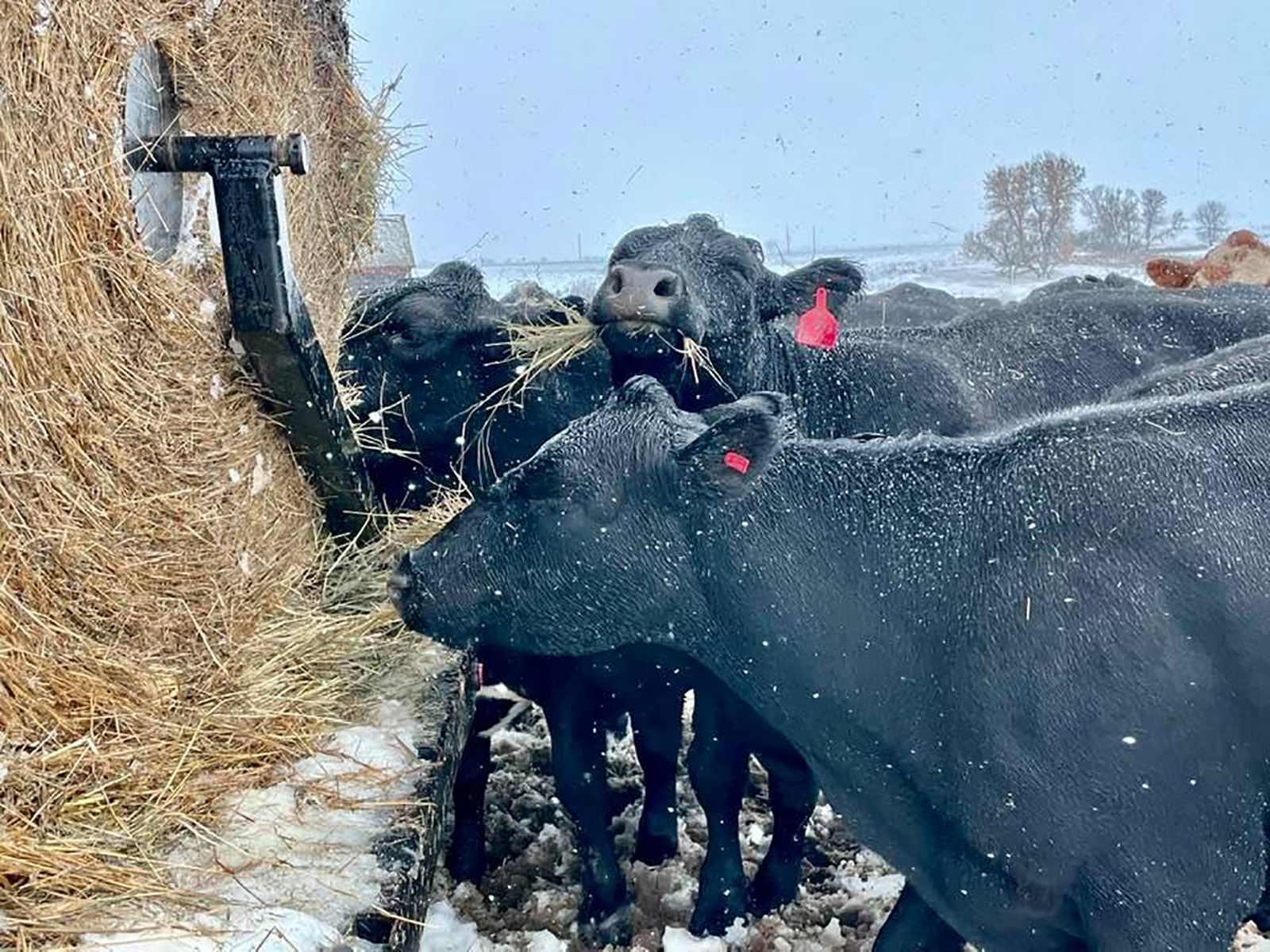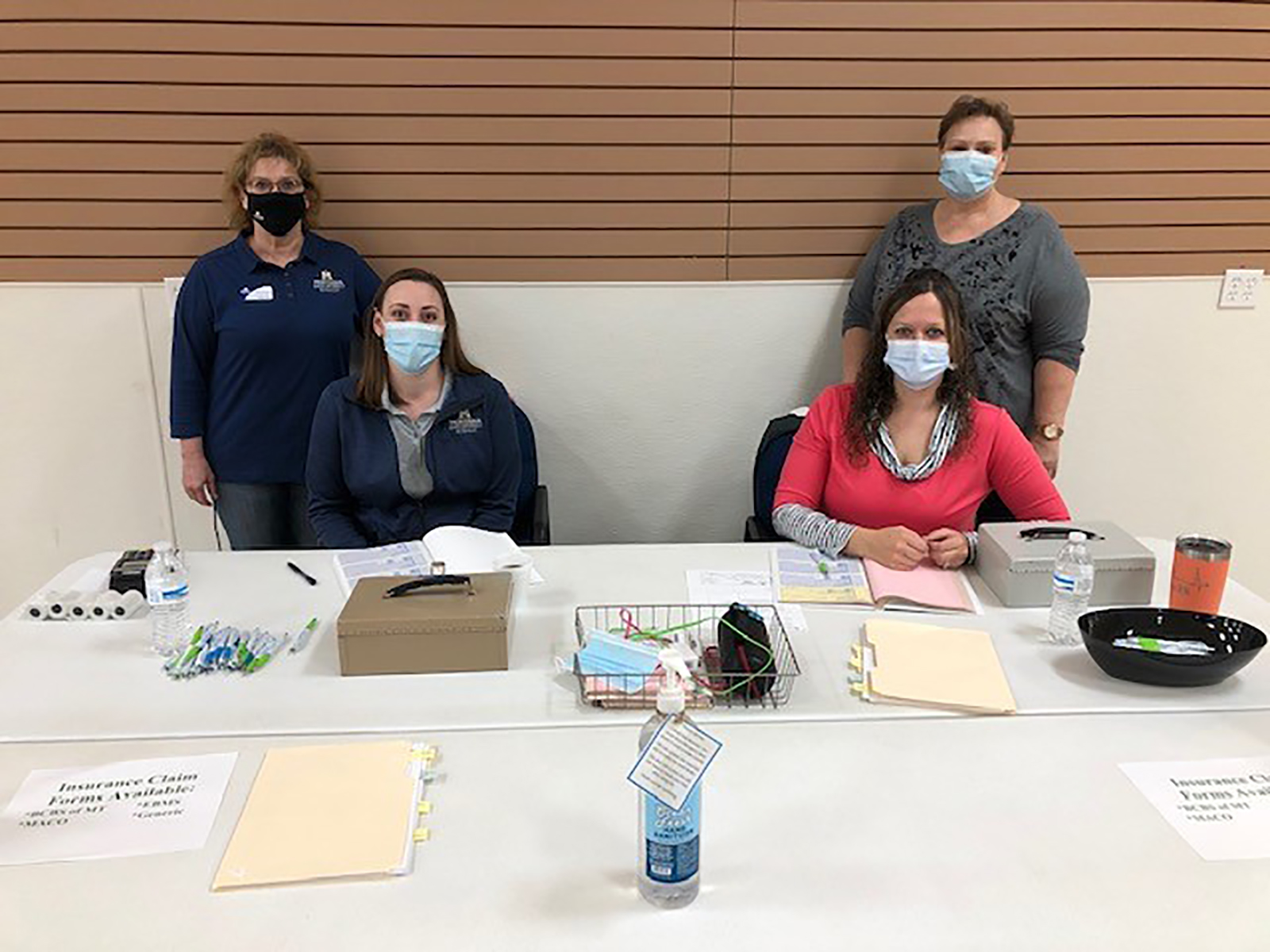
Wibaux County
Wibaux County
Published: 2021By Danielle Harper
Testing for Nitrate Toxicity in Wibaux County Forages
Published: 2021By Danielle Harper
Wibaux Health Fair “Masked Up”
Published: 2021By Patti Goroski
The health fair didn't include informational booths and the location was the Wibaux County Fairgrounds Exhibit Hall. With safety protocols in place such as hand sanitizer and everyone wearing a mask while inside the hall, CHI St. Alexius Health of Dickinson, North Dakota again provided lab personnel.
The first patient arrived at 5:55 a.m. and was headed out the door with a to-go breakfast by 6:00 a.m. The CHI lab, with assistance from the Beach Medical Clinic, saw 226 patients who received the following tests: 219 health panels, 90 PSAs, 135 Vitamin D, and 133 A1C. Although the Wibaux Health Fair has been a very social event in the past, participants were glad to have the service available while adhering to the safety protocols.
Wibaux and the surrounding communities are very supportive of this event. The annual event is sponsored by MSU Extension Wibaux County and the Wibaux County Health Department. The Health Fair Committee consists of Danielle Harper, MSU Extension Agent; Patti Goroski, MSU Extension Administrative/Program Assistant; and Trish Olson, Wibaux County Health Nurse.
Healthcare in Wibaux consists of a county-owned clinic staffed two days a week by Glendive Medical Center, and two days a week by Fallon Medical Complex. The health fair has proven to save community members thousands of dollars in health care costs. It has also saved the lives of those who have been referred to their primary care physician due to an abnormal blood profile or other screening test. Offering testing at a reduced cost encourages people to complete their blood work in a timely and cost-effective manner.
Photo Courtesy of Stephanie Fong, Marketing & Public Relations CHI St. Alexius Health Dickinson




